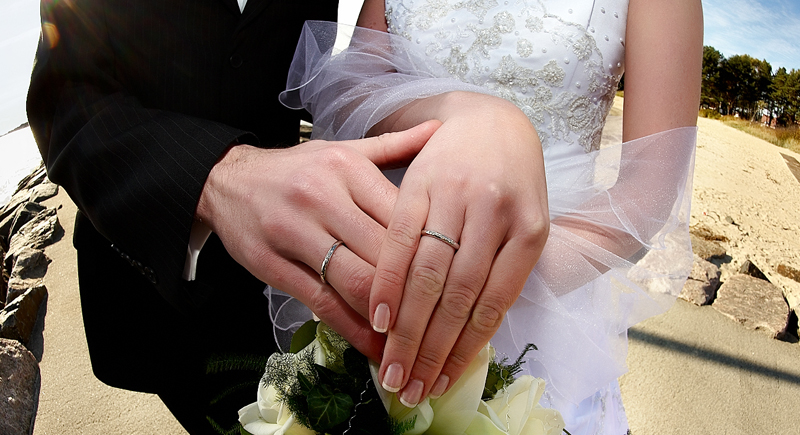If the Father-in-Law Dies, What Happens to the House If There is No Will?
According to a recent survey, a whopping 62% of Americans die without a will in place. This can lead to a legal and emotional dilemma for surviving family members, especially with the distribution of assets like a house. If you’re wondering what happens to your father-in-law’s house if he passes away intestate (without a will), our guide will help you navigate those murky waters. Here’s a breakdown of what you can expect, depending on your location and the specifics of the situation:
The State Takes the Reins (Intestacy Laws)

Credit: Getty Images
Without a will, the state steps in and distributes the estate according to its intestacy laws. These laws vary considerably from state to state, but they typically prioritize spouses, descendants (children and grandchildren), and then parents or siblings. This can lead to some unexpected outcomes, particularly if your father-in-law has a blended family or estranged relatives.
Spouses Usually Inherit (But Not Always)

Credit: Wikimedia Commons
In most states, a surviving spouse inherits the entire house or a significant portion of it. However, the exact share can vary depending on the presence of children from previous marriages. For example, some states grant surviving spouses a “life estate,” which allows them to live in the house for the rest of their lives, but ownership eventually passes to the children.
Children Inherit Equally (Usually)

Credit: Getty Images
If there’s no surviving spouse, the children typically inherit the house in equal shares. This can become a logistical nightmare if the children don’t see eye-to-eye on how to handle the property. Selling the house, renting it out, or even trying to live together in it can all lead to conflict.
Debt Can Complicate Things

Credit: Getty Images
If your father-in-law’s estate has outstanding debts, the house may need to be sold to settle those debts before any inheritance is distributed. This situation can be stressful for grieving family members, who may be emotionally attached to the property.
Beware of “Hidden Heirs”

Credit: iStockphoto
Sometimes, long-lost relatives or estranged family members can emerge and claim a stake in the house if there’s no will. This can be a real shock to the surviving family, especially if they weren’t aware of these relatives’ existence.
The Importance of Communication

Credit: Canva
If you suspect your father-in-law doesn’t have a will, having a calm and open conversation with him about his wishes for the house is crucial. Even if he’s hesitant to discuss his mortality, a gentle nudge towards estate planning can save the family a lot of heartache down the line.
State Variations Are Key

Credit: Canva
Remember, intestacy laws differ from state to state. It’s always best to consult an estate planning attorney in your father-in-law’s state of residence for the most accurate information on what would happen in your situation.
The Power of Planning (and Avoiding Probate)

Credit: Canva
The entire situation could be significantly smoother if your father-in-law had a will. A will allows him to clearly state his wishes for the house and other assets, minimizing confusion and potential conflict among beneficiaries. It can also help avoid probate, a lengthy and expensive court process that oversees the administration of an intestate estate.
Considering Tenancy with Rights of Survivorship

Credit: Canva
If your father-in-law owns the house jointly with his spouse with “rights of survivorship,” the surviving spouse automatically inherits the entire house upon the first spouse’s death. This can be a simpler and more efficient way to ensure the house stays within the immediate family.
Blended Families Get Messy

Credit: Getty Images
Things get particularly complicated when your father-in-law has a blended family. Without a will, his children from a previous marriage could inherit a portion of the house, which might not be what your spouse or their siblings anticipated. A will allows your father-in-law to specify his wishes for how the house should be divided, considering all his children.
Taxes and Title Transfer Fees

Credit: Getty Images
Inheriting a house comes with additional costs. Depending on your location, inheritance or capital gains taxes might be due on the property’s value. There are also title transfer fees associated with changing ownership of the house. A will can minimize these costs by allowing for specific bequests that reduce the overall taxable estate value.
Pre-Planning for Medicaid Eligibility

Credit: Getty Images
If your father-in-law might require long-term care in the future, a Medicaid planning attorney can help him structure his estate in a way that protects the house from being used to pay for care. This can be crucial for ensuring his spouse has a place to live without financial hardship.
Life Insurance as a Safety Net

Credit: Canva
Life insurance can be a valuable tool to offset the financial burden of inheritance-related costs like taxes and fees. A life insurance policy designated explicitly for these expenses can provide surviving family members with the resources to handle the legalities and maintain house ownership.
Open Communication is Key

Credit: Canva
No matter the circumstances, open communication is vital throughout the process. If you inherit the house with siblings or other beneficiaries, openly discuss how you plan to handle the property. Will you live in it together, rent it out, or sell it? Talking through these options and reaching a consensus can help prevent future conflict and maintain family harmony.